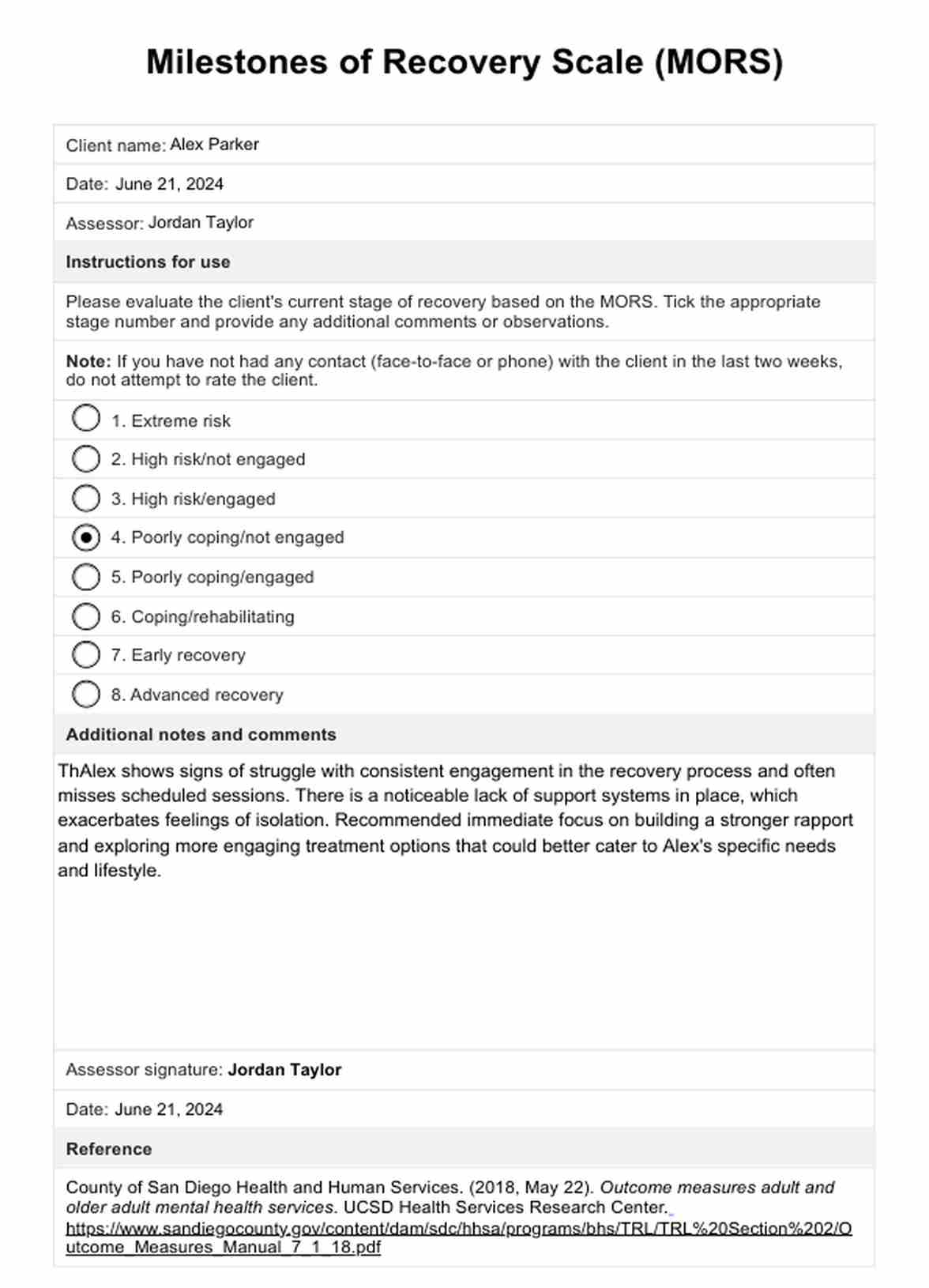The MORS is designed for use by mental health professionals, including clinicians, counselors, and social workers, to assess and monitor the recovery of individuals with severe mental illness. It is especially useful for addiction professionals working with clients with substance use disorders.

MORS Scale
Discover the MORS Scale—a tool for mental health professionals to assess and track recovery in severe mental illness. Download our free template!
Use Template
MORS Scale Template
Commonly asked questions
This should be administered regularly during client assessments, typically every few months, to track progress and adjust care plans as needed.
While the scale is particularly useful for severe mental illnesses, it can be adapted for use with a wide range of mental health conditions to help evaluate recovery and inform treatment.
EHR and practice management software
Get started for free
*No credit card required
Free
$0/usd
Unlimited clients
Telehealth
1GB of storage
Client portal text
Automated billing and online payments











